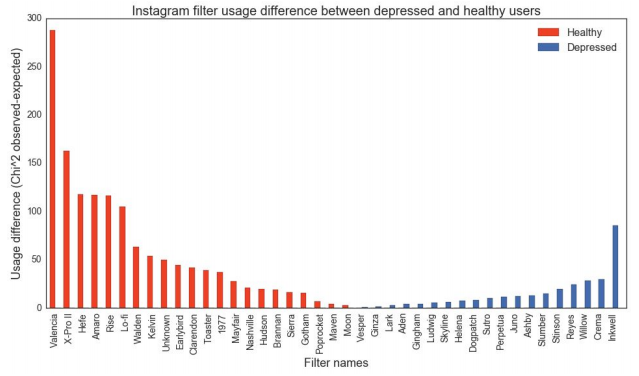
Nightly news and online click-baity articles have led us to believe that Faceboook is directly correlated with depression, and although these media outlets aren’t the most credible sources, clinical studies have proven the correlation between social media and depression since Facebook’s rise in 2004.

It all stems from the idea of “social comparison”, you know, when you see an old college friend take a whirlwind of a trip to Bali to go on an ‘Eat. Pray. Love’-style expedition? Constant comparison leads directly to depressive symptoms, making us want what we don’t have. Since Instagram’s origination in 2010, similar reports have flourished accrediting the social media giant to depressive tendencies.
[REWIND: USING INSTAGRAM’S NEW ‘STORIES’ FEATURE FOR PHOTOGRAPHY MARKETING]
Your Instagram Photos Say More than You think
Researchers from Harvard University and The University of Vermont conducted a study that explores what your Instagram photos actually reflect about your mental health. Their study was comprised of a selection of 43,950 Instagram photos from 166 participants accounts and analyzed using analysed for “color and saturation, metadata components & algorithmic face detection” (Cornell University Library).
Photos posted by depressed individuals were more likely to be “bluer, grayer, and darker” an unsurprising fact really, but is still worth contemplating. Hues of gloom plague specific filters like Inkwell, Crema, and Willow, and are connected to signs of depression. Since the app is still within 6 years of creation, these results are strictly indicators that there is a bleek future ahead for users. The developed model was able to “accurately predict which account holders had been diagnosed with depression 70% of the time, with a relatively low number of false alarms and misses.” See which filters correspond with depressive symptoms according to the study:
With over 100 million photos posted to the platform daily, researchers must take advantage of each patient’s digital consent to share their social media histories, which “could open up avenues for care that are currently difficult or impossible to provide”. Evidently, researches discovered that posts prior to date of diagnosis display signs of depression as well. Read more about the research study here. What does your IG say about you?






Get Connected!